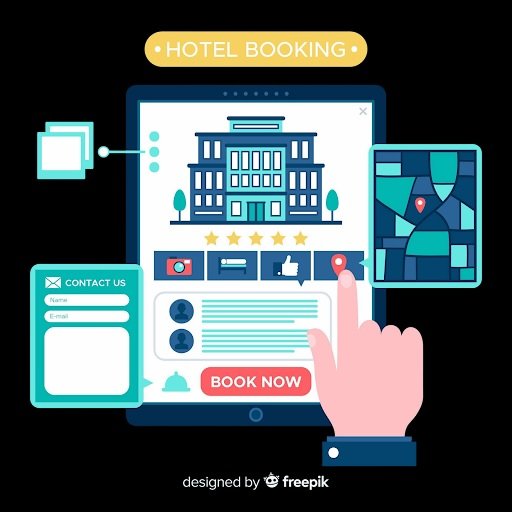Are you struggling with reduced revenue even after serving excellent guest services? Undoubtedly, people spend most of their time displaying reservations on an online travel agency for better online visibility. As per the study, an increased reliance on OTAs makes you earn approximately 10-30% of revenue by investing in a booking engine.
In this ultimate guide, the hoteliers will navigate the various options when selecting a booking engine. So, let’s delve into some of the essential features and look after considerations that significantly enhance your overall booking experience.
What is a Hotel Booking Engine?
The booking engine for hotels is software that enables guests to reserve their stay directly through the hotel website. The primary function of this hotel booking engine is to automate the process from checking availability, confirming the booking, and processing relevant payments. Thus, it all makes your booking experience hassle-free and enhances the guest’s experience.
Do you know that a booking engine has multiple benefits, including the following:
1: Helps in increasing your revenue
2: Maximizes your booking experience
3: Strengthens your brand loyalty through direct bookings.
To sum up, all these hoteliers have better control over their revenue as they can get direct reservations through their websites. In this way, you don’t have to rely on OTA’s and its struggle with any commission cuts.
What are some factors to consider when choosing a Booking Engine?
When selecting the right booking engine, you must think carefully as it directly impacts guest experience, operations, and revenue. Here are some of the essential factors for hotels that need careful evaluation:
1: Integration: The engine’s ability to smoothly interface with property management systems and other platforms is imperative. However, real-time syncing, inventory reservations, and guest data are essential.
2: Functionality: You must consider if the system provides all front-end capabilities and back-end management tools for your hotel needs. Does it cover rates, package reports, etc?
3: Ease Of Use: The booking process should be intuitive and straightforward for guests across all devices. However, the administrative interfaces should be easy and efficient for staff.
Great Features To Look For In Hotel Booking Engine
1: It should have a User-friendly interface
A user-friendly booking engine is important because it motivates potential guests to confirm their booking, rather than abandon their cart. Look for characteristics including an uncluttered interface and clearly defined call action. This is even more important considering now many travelers are able to make their own reservations through their smartphones.
2: Real-Time Updates
The following essential feature is its real-time availability and other pricing updates. This capability allows you to provide accurate information to your guests and reduces the likelihood of overbookings. It ensures that you can maximize your revenue potential.
3: Seamless Integration
There is a need to consider integration capabilities along with other systems like property management systems and channel managers. This integration helps streamline operations and provides a comprehensive view of bookings across various platforms, enhancing operational efficiency.
How Does It Work?
It allows guests to make online reservations according to their demands. Here is the step-by-step process of how a booking engine works:
1: Landing on the hotel’s webpage
Most people land on a hotel’s website and want to reserve a spot at their accommodation. So, it becomes essential to have a website integrated with a booking engine that ensures your guests can select all check-in and check-outs, enter the number of travelers per their preferences, and click now. Thus making the booking process more straightforward.
2: Search & availability
Once the guest makes their reservation, the booking engine checks through the hotel’s database for the availability of rooms. The booking engine shows all available rooms that match your criteria and the descriptions. Thus, it will narrow the rooms and allow them to be compared more efficiently.
3. Booking process
When you select your rooms, the guests will proceed with the other booking process. However, this process consists of guests filling out their personal information, choosing additional services, and entering payment details.
4. Payment gateway
The Hotel Booking engine integrates with a secure payment gateway, allowing guests to choose various methods. It includes credit cards, debit cards, and other online payment systems.
5: Confirmation
After you have made the payment, a confirmation email will be generated and shared with your guest. Also, the email contains all the booking details and provides a payment receipt.
The Way Forward
So, implementing a modern, customizable hotel engine is essential for properties to compete, boost direct bookings, and lift online conversions. It also helps maximize revenues, reduces costs, and provides a great guest experience. Therefore, identifying the ideal booking engine evaluates key factors like integration, customization, and other performance metrics.
While presenting easy access to make reservations on your website enhances the chances of a confirmed booking, OTAs are a great way of competing in the market. When the right booking engine is integrated into the website, your hotel is presented on any OTA. So, getting the right booking engine on your website helps guests make their booking journey positive.
